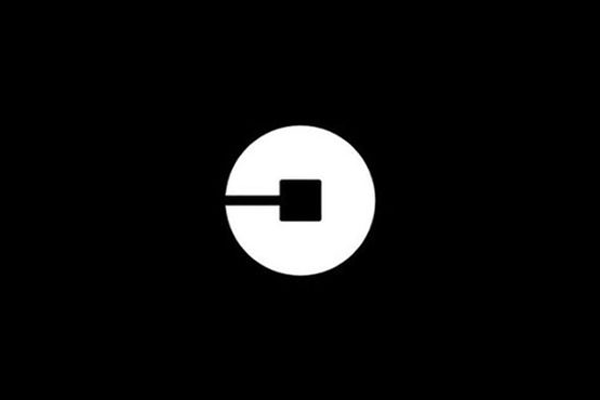Créer une entreprise est une véritable aventure qui nécessite un engagement humain, mais aussi financier dans la plupart des cas. Pour faciliter la création d’entreprise, différentes aides existent, qu’il s’agisse d’exonérations ou d’allocations. Anytime fait un tour d’horizon de ces aides destinées aux jeunes entrepreneurs.

L’exonération des cotisations sociales de début d’activité de création ou reprise d’entreprise
L’exonération de début d’activité de création ou reprise d’entreprise, anciennement ACCRE (Aide aux Chômeurs à la Création ou Reprise d’Entreprise), permet de bénéficier d’une exonération des cotisations sociales sur une période qui peut aller jusqu’à 3 ans.
À quoi donne droit l’exonération ?
Dans le cadre d’une EI, EIRL, EURL ou SASU, vous êtes exonéré des charges sociales, sauf de la CSG/CRDS et des contributions relatives aux risques d’accident du travail, à la retraite complémentaire et à la formation professionnelle continue.
Pour les micro-entrepreneurs, l’exonération de début d’activité de création ou reprise d’entreprise prend la forme d’une réduction des charges qui dépend de leur activité. Elle est dégressive, donc de moins en moins importante : 75 % la première année, 50 % la deuxième et 25 % la troisième.
Quelles sont les conditions d’attribution ?
Jusqu’au 31 décembre 2018, seuls certains profils pouvaient bénéficier de l’ACCRE. Depuis début 2019, la seule condition applicable est de percevoir moins de 40 524 € dans l’année.
L’exonération de charges sociales dans les DOM (départements d’outre-mer)
Cette aide, qui peut être attribuée pendant 4 ans, vise à soutenir l’entrepreneuriat dans les DOM (Guyane, Réunion, Guadeloupe, Martinique, Mayotte), en permettant aux entrepreneurs de ne payer que certaines charges.
À quoi ouvre-t-elle droit ?
Dans le cadre d’une EI, EIRL ou EURL soumise à l’impôt sur les sociétés, l’exonération dépend notamment du secteur d’activité et du nombre d’employés. Celle-ci peut être totale ou partielle selon la situation de l’entreprise.
Comme pour l’exonération de début d’activité, cette aide pour les micro-entrepreneurs prend la forme d’une réduction des taux applicables. La seule différence est qu’elle peut être octroyée pendant 4 ans.
Quelles sont les conditions pour en bénéficier ?
Tous les entrepreneurs qui domicilient leur société dans un DOM sont éligibles à cette aide, à l’exception de ceux qui sont salariés ou assimilés de leur entreprise. Cela exclut donc les dirigeants de SASU et de certaines EURL. Pour l’obtenir, il n’y a aucune demande à effectuer, l’octroi est automatique.
L’exonération d’impôt sur les bénéfices des entreprises nouvelles en zone prioritaire
Pour redynamiser leurs territoires, quelques collectivités territoriales ont mis en place une exonération d’impôt sur les bénéfices pour certaines entreprises sur une période pouvant aller jusqu’à 5 ans.
Que permet-elle ?
Cette exonération d’impôt est dégressive. Elle est totale les 2 premières années. Puis un abattement de 75 % est ensuite appliqué sur les bénéfices de la troisième année, 50 % la quatrième année et 25 % sur ceux de la cinquième année. À noter que dans certaines zones, comme en Champagne-Ardenne ou Midi-Pyrénées, l’exonération d’impôt est totale pendant 5 ans.
Quelles sont les conditions pour y prétendre ?
Seuls les dirigeants de nouvelles entreprises payant l’impôt sur les sociétés sont concernés. Il s’agit donc des dirigeants de SASU et de certaines EURL. Cette aide est automatique, il n’y a aucune demande à réaliser.
L’ARE
L’ARE est l’allocation d’Aide au Retour à l’Emploi, autrement dit, l’allocation chômage. Dans certaines conditions, l’indépendant peut bénéficier d’un maintien du versement de son allocation, même après avoir démarré son activité.
À quoi donne droit l’ARE ?
Le montant minimum quotidien de l’ARE versée est fixé à 20,67 € après une formation professionnelle et à 28,86 € dans les autres cas. Dans le cas d’une reprise d’activité en tant qu’indépendant, vous aurez droit à plus ou moins la différence entre ce que vous auriez perçu en étant au chômage total et ce que vous avez gagné au titre de votre activité.
Qui peut en bénéficier ?
Pour percevoir l’ARE, il faut avoir perdu son emploi (licenciement ou faute grave), ne pas avoir atteint l’âge de la retraite, être inscrit sur la liste des demandeurs d’emploi et être en recherche active d’un nouveau travail ou en phase de création d’entreprise.
Pour obtenir cette aide, il est nécessaire d’en faire la demande auprès de Pôle emploi.
L’ARCE
L’Aide à la Reprise ou à la Création d’Entreprise peut être choisie à la place de l’ARE. Il s’agit d’une allocation versée en deux temps.
À quoi ouvre-t-elle droit ?
L’ARCE correspond à 45 % du montant total de l’ARE restant. Elle est versée en deux fois, sous forme de capital. Si la demande est acceptée, le premier versement est effectué lors de la validation, et le deuxième, à l’issue des 6 premiers mois d’activité. En cas de cessation d’activité, les 55 % restant pourront de nouveau être versés au titre de l’ARE, si vous vous réinscrivez en tant que demandeur d’emploi.
Quelles sont les conditions d’octroi de l’ARCE ?
Pour percevoir l’ARCE, il faut être éligible à l’ARE, créer une entreprise et bénéficier de l’ACCRE. Tout comme l’ARE, la demande est à effectuer auprès de Pôle emploi.
Les aides de l’Agefiph
Cette aide de l’État gérée par l’Agefiph est destinée à favoriser l’insertion des travailleurs handicapés en les aidant dans leur création d’entreprise.
Qu’offre-t-elle ?
Cette aide ouvre le droit au versement d’un montant minimum de 5 000 €, effectué en une fois.
Quelles sont les conditions pour y être éligible ?
Pour bénéficier de l’aide de l’Agefiph, il est nécessaire de respecter plusieurs conditions : + être reconnu travailleur handicapé par la CDAPH (Commission des Droits et de l’Autonomie des Personnes Handicapées) + créer ou reprendre une entreprise + disposer d’un capital de 1 500 €
La demande s’effectue avec l’aide d’un responsable Agefiph.
Si vous êtes en phase de création d’entreprise ou que vous avez besoin d’aides pour votre micro-entreprise, n’hésitez pas à les demander lorsque cela est nécessaire. Cet article recense les aides aux entrepreneurs les plus courantes, mais d’autres peuvent également être accessibles selon votre profil, votre activité et votre région. Certaines aides s’adressent uniquement aux femmes ou aux jeunes de moins de 25 ans et d’autres ne concernent que certains secteurs d’activité. N’hésitez pas à faire vos propres recherches !








